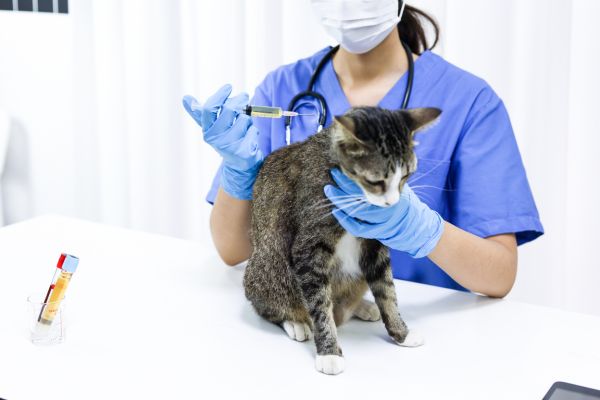Cats are fascinating creatures with complex biological systems, and one of the most vital yet often overlooked aspects of their health is their digestive system. Specifically, gut health in cats plays a crucial role not only in digestion but also in immunity, mood regulation, and overall well-being. A healthy gut is more than just a functioning stomach—it’s a thriving ecosystem of beneficial bacteria and digestive enzymes working together to keep your feline friend in peak condition.
Why Gut Health in Cats Deserves More Attention
Many cat owners focus primarily on diet, grooming, and vaccinations, but the inner workings of the gastrointestinal tract deserve equal consideration. The gut is home to trillions of microorganisms that help break down food, absorb nutrients, and protect against harmful pathogens. When this delicate balance is disrupted, the consequences can manifest as digestive upset, skin issues, behavioral changes, and weakened immunity.
Emerging veterinary research highlights how gut health in cats influences their overall quality of life. From regulating inflammation to supporting mental well-being, the gut is closely intertwined with multiple bodily systems. Understanding how to maintain a healthy gut environment is essential for ensuring your cat leads a vibrant, energetic, and happy life.
Signs of an Unhealthy Gut in Cats
Recognizing when something is wrong can be challenging, especially since cats are masters at hiding discomfort. However, certain signs can signal imbalances in gut health. Chronic diarrhea, vomiting, excessive gas, and a dull or thinning coat may all indicate digestive issues. Additionally, behavioral changes such as lethargy or irritability could be linked to poor gut function.
Even more subtle symptoms, such as frequent hairballs or irregular bowel movements, might be clues that your cat’s digestive microbiome is off balance. If left unaddressed, these issues can escalate and affect other areas of health, including the liver, kidneys, and immune response. This makes early detection and proactive care of gut health in cats not only important but potentially life-saving.
The Role of Diet in Supporting Gut Health
Nutrition plays a foundational role in shaping gut health. Cats are obligate carnivores, meaning their digestive systems are designed to process meat efficiently. Feeding a species-appropriate diet that is rich in high-quality animal protein and low in fillers such as corn or wheat can support optimal digestion and nutrient absorption.
Incorporating prebiotics and probiotics into your cat’s meals can further enhance their gut microbiome. Prebiotics feed the beneficial bacteria, while probiotics introduce live microorganisms that promote balance. These additions can often be found in specialized cat foods or as veterinary-approved supplements. However, it’s always best to consult with a veterinarian before introducing new elements to your cat’s diet.
Hydration also plays a significant role. Many cats do not drink enough water, especially when fed a dry food diet. Wet or raw food options can increase moisture intake and ease digestion. Ensuring access to fresh water at all times and encouraging hydration through food can directly support gut function and overall health.
How Stress Impacts Gut Health in Cats
Much like in humans, stress has a direct impact on gut health in cats. Changes in environment, routine, or household dynamics can lead to anxiety, which in turn disrupts digestive balance. The gut and brain are connected through the gut-brain axis, a communication network that links emotional and gastrointestinal health.
When a cat experiences chronic stress, it can lead to conditions such as irritable bowel syndrome or inflammatory bowel disease. Owners might notice that their cat becomes more withdrawn, develops eating irregularities, or has inconsistent stool quality. Creating a stable and enriching home environment, offering regular playtime, and providing hiding spots can help alleviate stress and support healthier digestion.
Gut Health and the Immune System
A large portion of a cat’s immune system resides in the gut. The intestinal lining acts as a barrier that prevents harmful bacteria and toxins from entering the bloodstream. When the gut is healthy, this barrier functions effectively, keeping pathogens at bay and reducing inflammation throughout the body.
However, when gut health deteriorates, this protective barrier can become compromised. This condition, sometimes referred to as “leaky gut,” allows harmful substances to pass through, triggering immune responses and systemic inflammation. This not only affects digestive comfort but can also contribute to chronic diseases such as allergies and autoimmune conditions.
Maintaining strong gut health in cats is therefore an essential part of bolstering their immune defense. It enhances their resilience against infections, reduces the likelihood of chronic illness, and supports faster recovery from illness or surgery.
Veterinary Support and Diagnostic Tools
If you suspect your cat may be experiencing gut health issues, it is important to consult a veterinarian. Diagnostic tools such as fecal analysis, blood tests, and food allergy assessments can help determine the underlying cause of symptoms. Early intervention can prevent more serious complications and allow for targeted treatment.
Veterinarians may recommend changes in diet, prescribe medications to address infections or inflammation, or suggest supplements to restore balance in the digestive tract. Regular check-ups and monitoring ensure that your cat remains on the right path toward optimal gut health and overall vitality.
The Future of Feline Gut Health
With increasing awareness of the importance of gut health in cats, the pet care industry is investing in innovative solutions. From microbiome testing kits to specialized diets formulated to nurture digestive flora, new products and therapies are making it easier than ever to support your cat’s internal wellness.
As research progresses, we are beginning to understand the complex interplay between diet, environment, genetics, and microbial diversity in shaping gut health. This growing body of knowledge empowers cat owners to make informed decisions that can significantly enhance their pets’ lives.
Conclusion: Nourishing the Core of Feline Wellness
In the journey toward better feline care, prioritizing gut health in cats is no longer optional—it is essential. A well-balanced digestive system supports not just digestion, but also immunity, mood, and long-term wellness. By being attentive to diet, stress levels, and early warning signs of imbalance, cat owners can provide a foundation for vibrant health.
Whether you are raising a playful kitten or caring for a senior companion, nurturing gut health is one of the most impactful ways to ensure your feline thrives. With the right care and informed choices, your cat can enjoy a life of comfort, energy, and joy—starting from the inside out.





